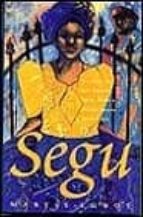
It is in Jenne that Tiekoro states, “How strange that the name of God is should divide people when god is love and power. Tiekoro ventures off in pursuit of Islamic studies and after being expelled from an Islamic university begins to teach Islam in the city of Jenne. With Tiekoro, Condé is able to show how Islam spread through trans Saharan trade routes, as well as the opportunity it provided for Africans during the time period. Tiekoro is intrigued by a new religion and in Condé’s words, “Islam was new to the region, brought there by the Arab caravans like some exotic merchandise! (Condé 22).” In this way, Tiekoro saw Islam as a means of escaping from a world of sacrifices and old ways to one that offers an exotic, loving appeal. When the reader is first introduced to Tiekoro, he is portrayed as a boy unhappy with his religion and desperately searching for one that focuses on love rather than fear like the native religion he was raised with. The oldest of the sons, Tiekoro exemplifies the influence and spread of Islam through out Africa at the time. Condé uses the four brothers of the Traore family, Tiekoro, Malobali, Siga, and Naba, to demonstrate the impact that the issues of Islam, slave trade, and identity had on African people through the development of each character. The African Slave Trade, the spread of Islam, and personal identity challenges were all tremendous and far-reaching issues facing Africa from the late 1700s to early 1800s.

The historical novel Segu by Maryse Condé is set in the African country of Segu during a time of great cultural change.


 0 kommentar(er)
0 kommentar(er)
